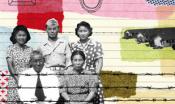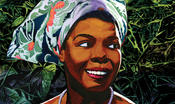text
Informational
Beyond the Barbed Wire

Helen Tsuchiya, born a U.S. citizen, tells what it was like to move from her home to an internment camp surrounded by barbed wire after the Japanese attack on Pearl Harbor.
July 2, 2014





